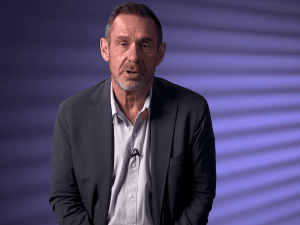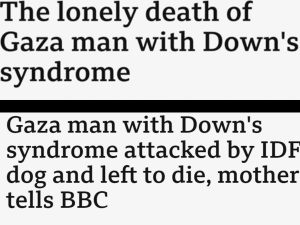It’s the second week of an inquest into the death of Maeve Boothby O’Neill. In 2021, the 27-year-old died of myalgic encephalomyelitis (ME/CFS). However, it wasn’t the devastating disease alone that killed her – Maeve died as a result of a series of unconscionable failures by the NHS professionals charged with her care.
During the first week, Maeve’s words – penned not long before her death – were read out to the courtroom. Among her fiercely intelligent, powerful, and enormously important musings on the abysmal state of ME care, Maeve wrote:
How frightening to discover that there are no doctors who can help you, that they do not even know what is wrong with you, and that in looking for effective alternatives you will be wandering in a wilderness of quacks and blogs.
Three years on from her death, one post on X has proved how heartbreakingly and painfully true Maeve’s words were – and still are. Because in the midst of the ongoing inquest, the corporate media has spun, woven, and twisted the facts to fit a particular narrative. Largely, this is one where NHS clinicians aren’t culpable – and biopsychosocial beliefs not to blame – for the catastrophic failings that ultimately led to her death.
A singular article from iNews has summed it up, when – Maeve’s inquest ongoing – it proselytised psychiatric and dubious alternative treatments. And what made it infinitely worse? One of the UK’s biggest ME charities shared it (seemingly) without a second thought.
Maeve inquest: another gaslighting article on ME/CFS
On the face of it, the iNews article explored former severe ME/CFS patient Lucy Rowett’s battle with the devastating chronic illness and a dire healthcare system.
Predictably, there were many parallels with Maeve’s story, which it drew. In this way, the article appeared to be speaking to the systemic stigma and dogma that pervades the entire healthcare system for ME. Yet, this wasn’t actually the underlying thrust of piece, or Rowett’s message. Instead, it promoted junk science, psychologising treatments, and alternative therapies.
There’s a long, torrid history of snake-oil sales people preying on people living with ME. A prominent recent example was the Dragon’s Den ‘ear seeds’ debacle. In this case, Rowett was opining her successes with reiki – a pseudoscientific ‘energy’ therapy.
Of course, it didn’t stop there. In one notable passage, it described how Rowett had gone to an inpatient unit at Queen’s Hospital. There, doctors put her on a “structured programme”. She told iNews what this involved, stating how:
One week I’d start by trying to sit slightly up for 10 minutes, the next week I’d sit up a bit more and for a bit longer. We did the same with walking to the end of the bed”. That helped gradually build back her ability to sit up, chew and walk.
In short, this was graded exercise therapy (GET) by any other name. This is the treatment at the centre of immense harm to people living with ME. Reading this was jarring next to Maeve’s own words I’d heard during Friday’s proceedings, and the experiences of myself and many others I know living with ME.
Corporate media STILL promoting GET
Maeve had spoken to her own encounter with GET and cognitive behavioural therapy (CBT) – another treatment wrapped up in the history of the psychologisation of the disease. By contrast to Rowett, she’d written that:
I attempted to follow the workbook they gave me, find my high energy activity baseline and increase it by 20 per cent every fortnight, provided this didn’t bring on any symptoms. It didn’t work.
Instead, my baseline shrank. I rarely had the energy for telephone CBT [cognitive behavioral therapy] with an OT [occupational therapist], and it was never helpful. Physical stamina was the wrong paradigm, nor was the issue with my thoughts or feelings of behaviour. Since then my health has only deteriorated. I am now 26.
After the ceaseless, unwavering efforts of ME/CFS campaigners, the National Institute for Health and Care Excellence (NICE) updated its clinical guidelines, dropping GET as a treatment for ME. Maeve herself wrote on the guidelines too:
Persisting with the GET/CBT approach on the grounds that it is evidence base[d] when that evidence base is fundamentally flawed, will do nothing to improve the situation of severely affected patients, any of whose severity of disease has been increased by this treatment.
Having come so far to recognise the needs of patients, particularly the severely ill, I profoundly hope that NICE [the National Institute for Health and Care Excellence] will not bactrack at this late stage.
But she did not live to see it – NICE published these just weeks after Maeve’s death in October 2021. And three years on, here again was a corporate media outlet laundering this dangerous treatment, in the very midst of Maeve’s inquest.
However, this wasn’t even the worst of it.
As Severe ME Day approaches
Maeve’s inquest will conclude just days before Severe ME Day – 8 August – Sophia Mirza’s birthday. Sophia was the first person in the UK to have ME/CFS recorded as her cause of death. She died in 2005, after a litany of painfully similar failures and abuse by healthcare professionals. Since 2013, the community has marked this as a day of remembrance for all those who’ve died to ME. And of course, there have been far, far too many.
For Severe ME Day in 2020, the ME Association posted an extract from Sophia’s Story, written by her mother Críona Wilson. In this, she expressed how Sophia’s abusive GP tried to coerce her to attend a supposed specialist neurological clinic. She wrote that:
In 2001, Dr. Firth approached Professor Findley at Oldchurch Hospital in Romford, telling me, for legal protection of the G.P. and the surgery. Sophia asked me to research the clinic, which cost thousands of pounds. They told me, when I pressed them for long-term results, that patients usually revert to the point from whence they started.
I spoke to a couple of ex-patients who were afraid to have their names used; they said that this clinic was run on the lines of mental health and used Graded Exercise, although it claimed to be a neurological clinic. They also said that when patients did not get better that they were given a different diagnosis before being sent home. Sophia elected not to go to the clinic.
And so it is with a cruel, contemptuous irony that during Maeve’s inquest – almost two decades on from Sophia’s death – a corporate news outlet was extolling none other than Dr Leslie Findley, and his long-closed ME clinic.
ME Association provides veneer for trash article
It was in this context that the ME Association posted the article on its X:
*TW: Upsetting Content* @theipaper I had ME and almost died – my doctors gaslit me (paywalled)https://t.co/uTkONtTiBi#MECFS #MyalgicEncephalomyelitis #SevereME #MaeveInquest
— ME Association (@MEAssociation) July 30, 2024
The piece had a comment from the ME Association’s honorary medical adviser Dr Charles Shepherd. It’s presumably why the charity’s social media handle shared the article in the first place. However, if anything, the quote actually makes this all that much worse.
By providing a comment, the ME Association loaned legitimacy to the whole piece. And wittingly aware of the article’s GET and alternative therapy bent or not, the damage is done.
Plenty from the ME/CFS community on X have voiced their horror at this. However, it’s also not hugely surprising either. For one, I’ve previously explored the connections between the ME Association and a notorious organisation at the heart of the psychiatric lobby.
The big ME charities have at best, stood idly by as the NHS kill many more Maeve’s.
In the last year alone, the Canary has highlighted three such women NHS services have been abusing. They are still doing this right now to 23-year-old Carla Naoum in West Middlesex hospital.
At worst, the ME charities have been actively complicit in propping up arrogant professionals trivialising ME as part-psychosomatic.
The ME Association’s comment in and share of this iNews article is another case and point of that.
Maeve should still be here
The concluding line in the iNews article has stayed with me in an altogether different way to Maeve’s prosaic words. It was a quote from Rowett, which said:
Recovery is possible. I know it is. Maeve didn’t need to die.
Of course, she was right in this, Maeve didn’t need to – or rather, shouldn’t have – died. But this isn’t as Rowett and iNews implied as a result of missed opportunities for alternative therapies. In fact, it’s precisely these psychiatric, opportunistic, as Maeve herself put it, “quacks” – and the media that shills for them – who were responsible for her death.
After years of gaslighting people living with ME/CFS, I didn’t think the corporate media could stoop any lower. Gaslighting a young woman after her death? How wrong I was.
Maeve was a writer, the same age as me, from the county just over from mine. In 2021, I was going through the second year of a Covid-induced ME relapse. I was never severe, but I was mostly house and bedbound, feeling helpless and hopeless as so many living with this awful chronic illness do.
In the grip of her severe ME, Maeve wrote so poignantly, profoundly about the tragic, woeful state of care for people with ME. Somehow, her lyrical prose still managed not to pull any punches. She articulated so eloquently what I’m now struggling to put into words and communicate to you.
By the end of 2021, Maeve was gone, the NHS had killed her. In December 2021, life in tatters, I reached out to Steve Topple here at the Canary.
In her writings, Maeve had expressed how:
I had every potential to be an asset to humanity, and hoped and intended to advance the cause of human flourishing
I didn’t know if I had that potential, and I still don’t. But I did know that if I got the chance, I wanted to turn my pen to do the same. And I was lucky. In the months that followed, my ME did improve. Then, in March 2022, Steve invited me onto the Canary’s journalism training scheme.
It’s why I’m where I am now, writing this: why – if I’m honest with myself – I think I’m even here now at all. Maeve should be here now too, writing her truth to power, and I so badly wish she were.
The ME Association and iNews circulating this sham biopsychosocial ‘science’ are an affront to her memory. Never more so than the very fortnight we’re seeing just how a healthcare system with this firmly entrenched belief utterly failed this young, brilliant soul, who should have had so much life yet to live.
Featured image via the Canary




